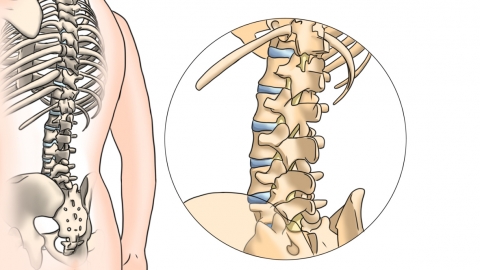What medication is effective for thoracic spinal osteophyte formation?
In general, thoracic osteophyte formation is often caused by degenerative changes in the thoracic spine, commonly accompanied by local pain and stiffness, and in severe cases may compress nerves. Patients can follow medical advice to use medications such as celecoxib capsules, glucosamine hydrochloride capsules, sodium chondroitin sulfate tablets, mecobalamin tablets, and ibuprofen sustained-release capsules for treatment. Specific details are as follows:
1. Celecoxib Capsules
This medication belongs to nonsteroidal anti-inflammatory drugs (NSAIDs). By inhibiting cyclooxygenase activity and reducing prostaglandin synthesis, it exerts anti-inflammatory and analgesic effects. It effectively relieves local inflammation and pain caused by thoracic osteophytes, alleviating patient discomfort, and is suitable for use when inflammation is evident.

2. Glucosamine Hydrochloride Capsules
These promote the synthesis of cartilage matrix and inhibit the activity of cartilage-degrading enzymes, thereby slowing degenerative changes in thoracic cartilage, improving cartilage metabolism, and reducing irritation of surrounding tissues due to osteophyte formation. Long-term use helps maintain thoracic joint function and slows symptom progression.
3. Sodium Chondroitin Sulfate Tablets
Acting as a cartilage-protective agent, this drug increases water content in cartilage, improves cartilage elasticity, promotes cartilage repair, and simultaneously suppresses inflammatory responses. It helps reduce joint stiffness and pain caused by thoracic osteophytes and supports the maintenance of thoracic joint stability.
4. Mecobalamin Tablets
This is an endogenous coenzyme B12 that nourishes damaged nerve tissues and promotes nerve repair and regeneration. If thoracic osteophytes compress nearby nerves causing numbness or pain, this medication can improve nerve conduction and alleviate symptoms related to nerve compression.
5. Ibuprofen Sustained-Release Capsules
This drug has antipyretic, analgesic, and anti-inflammatory properties. By inhibiting prostaglandin synthesis, it reduces pain and inflammation, quickly relieving localized pain caused by thoracic osteophytes. The sustained-release formulation prolongs the duration of action and maintains stable pain relief, making it suitable for use during episodes of pain.
It is important to maintain proper sitting and standing posture in daily life, avoid prolonged bending or sitting, and reduce stress on the thoracic spine. Appropriate functional exercises for the thoracic spine should be performed to strengthen surrounding muscles. Keep the thoracic area warm to prevent cold exposure from worsening symptoms. If symptoms fail to improve or worsen after medication, seek timely medical evaluation and further treatment.




